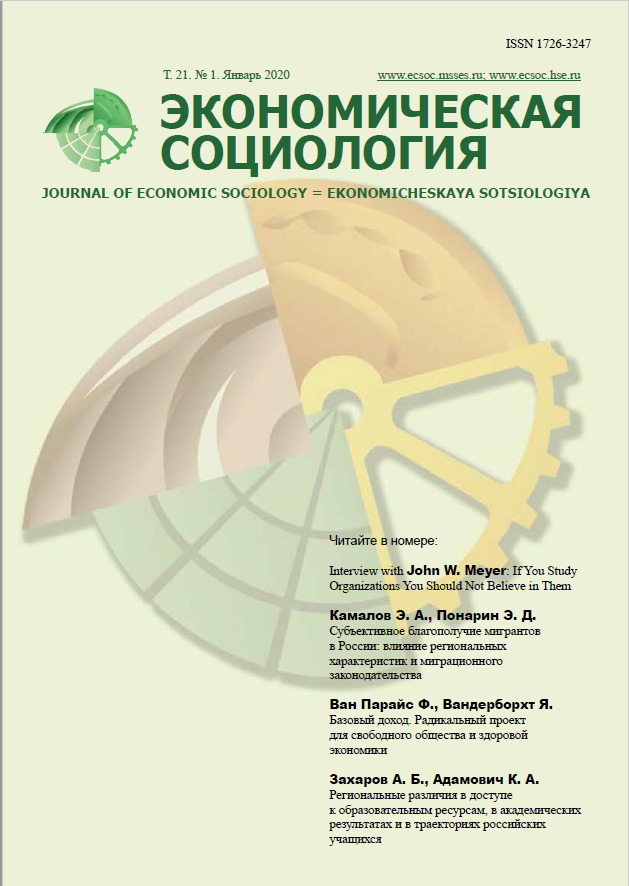Subjective Well-being of Migrants in Russia: Effects of Regional Characteristics and Migration Legislation
Abstract
Migration is an important and rapidly growing phenomenon in the modern world. Many countries are facing problems with integration and adaption of migrants to new living conditions. Subjective well-being (SWB) can be considered as an indicator of how successfully migrants are adapted and integrated into the host society. Levels of migrants’ SWB are often determined by the same factors as for other people—good health, high salary, employment and youth make them happier. Nonetheless, migrants’ decision to migrate is often led by economic motives, which leads them to overvalue economic characteristics of countries and regions of destination and undervalue non-economic factors. This paper aims to estimate the effects of the economic prosperity (measured by gross regional product) and social capital of Russian regions (measured by general social trust and relative size of the community of the migrant’s compatriots) on the life satisfaction of migrants. In addition, we analyze possible effect of the inclusion of the migrants’ country of origin into Eurasian Customs Union. To answer the proposed questions we employed data of the Russian Longitudinal Monitoring Survey—Higher School of Economics (RLMS-HSE) and statistics provided by Russian Federal State Statistics Service. The main method of analysis is a cross-classified multilevel linear regression modeling. The results show that the economic performance of a region has no effect on the life satisfaction of a migrant. It appears that social factors play a greater role—the effects of general social trust and the relative size of the community of a migrant’s compatriots in a region are positive and statistically significant. We found that inclusion of the country of migrants’ origin into the Eurasian Customs Union positively and significantly affects the life satisfaction of migrants. We associate this effect with a decrease in the economic and psychological costs of migration.













